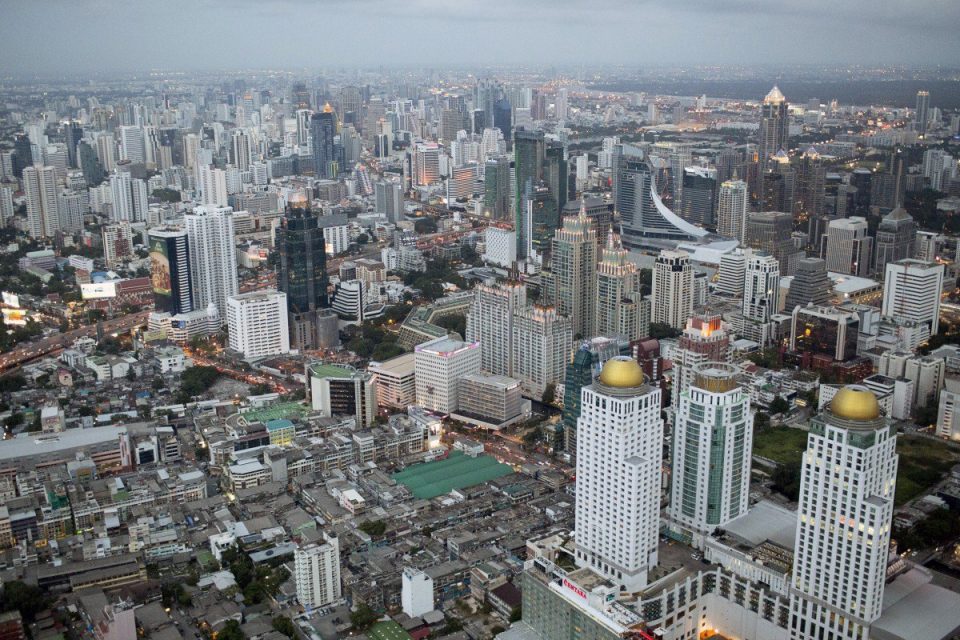Chinese interest in Thai properties is skyrocketing, as cheap price tags and low taxes lure them away from traditional markets such as Australia and Canada.
Great food, great people and great prices are only some of the reasons why Thailand has recently become a top destination for property buyers from Hong Kong and mainland China.
According to figures by the Bank of Thailand, Chinese nationals spent a record 40 billion baht (US$1.25 billion) on Thai properties last year.
Condominium purchases have been especially popular with buyers from China. Buyers from the US, Singapore, Taiwan, the UK and Japan were also among the biggest spenders on condominiums in Thailand last year.
Interest from Russians – who have long been heavy spenders in the Pattaya and Phuket condominium markets – has recently dwindled due to the weaker rouble, said property analyst Phattarachai Taweewong from Colliers International
Low prices and taxes were factors that appealed to Chinese buyers, said Carrie Law, CEO and director of China’s biggest property website, Juwai.com.
“Both Canada and Australia have declining property markets and new foreign buyer taxes. This helps drive investment away from those countries,” Law said. “Thailand does not impose extra taxes on foreign buyers. Prices start in the low US$100,000s. That’s very appealing.”
Juwai received a record number of inquiries on Thai properties last year, with total sales in Thailand topping its 2018 charts for the first time. The surge in interest pushed traditionally popular destinations such as Australia and Canada to second and fourth place, respectively.
Beijing, Shanghai, Guangdong, Jiangsu and Zhejiang made up the largest source provinces, Law said. “Beijing has a strong lead, with nearly twice the share of buyers that either Shanghai or Guangdong has.”
According to Juwai, about half its buyers said they were purchasing properties for their own use. Having a holiday property was the goal of 15 per cent of buyers. And having a property to live in during retirement was the aim of 6.3 per cent of buyers.
Some 70 per cent of all buyers told the website they hoped their property would be a good investment.
Foreigners are allowed to own 49 per cent of units in any condominium project in Thailand, but are not allowed to own land.
Surachet Kongcheep, an analyst at Bangkok-based Phoenix Property Development and Consultancy said: “The prices of property in Thailand are not too expensive and Chinese mostly spend on units that are valued below 3 million baht as a form of investment.”
The rising popularity of Thai properties in China was such that units of condominium projects marketed in the mainland “were sold out before the domestic sales”, said Phattarachai.
Thailand is experiencing oversupply in the property market, he said. About 58,000 new condominium units were developed in the country in 2017, and 66,000 were built last year – compared to the usual 40,000 to 50,000 units developed annually.
In order to prevent a real estate bubble, the Bank of Thailand tightened lending policies which have made it more difficult for Thai people to buy homes, causing a slowdown in local property sales.
But observers say interest from foreign buyers and Chinese investors will sustain the sector for years to come.
“Foreigners paid 92 billion baht (US$2.88 billion) to obtain properties last year, compared with 70 billion baht in 2017,” said Phattarachai. “We expect the figure to reach 100 billion baht this year.”
The sector will also benefit from Chinese industrial investors shifting their production bases to Thailand to relieve the impact of the US-China trade war, said Law from Juwai.
“Thailand is one of the biggest beneficiaries of the trade war due to its excellent logistics, sophisticated manufacturing and export sector, and a cost of labour that is less than half of China’s,” she said. “Closer commercial ties will also lead to more property investment.”




